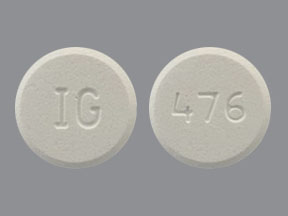
Lanthanum Carbonate Coupons & Savings Card – Discount Prices from $152.46
Generic for: Fosrenol
Lanthanum is used to lower high blood phosphate levels in people who are on dialysis due to severe kidney disease. Dialysis removes some phosphate from your blood, but it is difficult to remove enough to keep your phosphate levels balanced. Decreasing blood phosphate levels can help keep your bones strong, prevent unsafe buildup of minerals in your body, and may decrease the risk of heart disease and strokes that can result from high phosphate levels. Lanthanum is a natural mineral that works by binding to phosphate in the foods you eat. The phosphate then passes out of your body in your stool.
Our coupons are free to use. Before paying, show the pharmacist your Lanthanum Carbonate savings card to get your free discount. Use our filters below to edit the prescription box to match your needs. The Lanthanum Carbonate prices will update based on your prescription needs. Above our Lanthanum Carbonate coupons, you can change your location to see pharmacy prices and costs in other areas. We're here to help you buy Lanthanum Carbonate at the lowest price with our prescription discount card.
My prescription
Edit
500MG, Lanthanum Carbonate (90 Tablet Chewables)
Select pharmacy

CVS
$152.46
COUPON PRICE
Walgreens
$288.00
COUPON PRICE
Albertsons
$356.93
COUPON PRICE
Walmart
$452.85
COUPON PRICELanthanum Carbonate savings card
Show this card to your pharmacist
CVS
$152.46
BIN
ID
PCN
GRP
019876
LH19EA5C36
CHIPPO
LHX
Powered by
Lanthanum is used to lower high blood phosphate levels in people who are on dialysis due to severe kidney disease. Dialysis removes some phosphate from your blood, but it is difficult to remove enough to keep your phosphate levels balanced. Decreasing blood phosphate levels can help keep your bones strong, prevent unsafe buildup of minerals in your body, and may decrease the risk of heart disease and strokes that can result from high phosphate levels. Lanthanum is a natural mineral that works by binding to phosphate in the foods you eat. The phosphate then passes out of your body in your stool.
Our coupons are free to use. Before paying, show the pharmacist your Lanthanum Carbonate savings card to get your free discount. Use our filters below to edit the prescription box to match your needs. The Lanthanum Carbonate prices will update based on your prescription needs. Above our Lanthanum Carbonate coupons, you can change your location to see pharmacy prices and costs in other areas. We're here to help you buy Lanthanum Carbonate at the lowest price with our prescription discount card.
